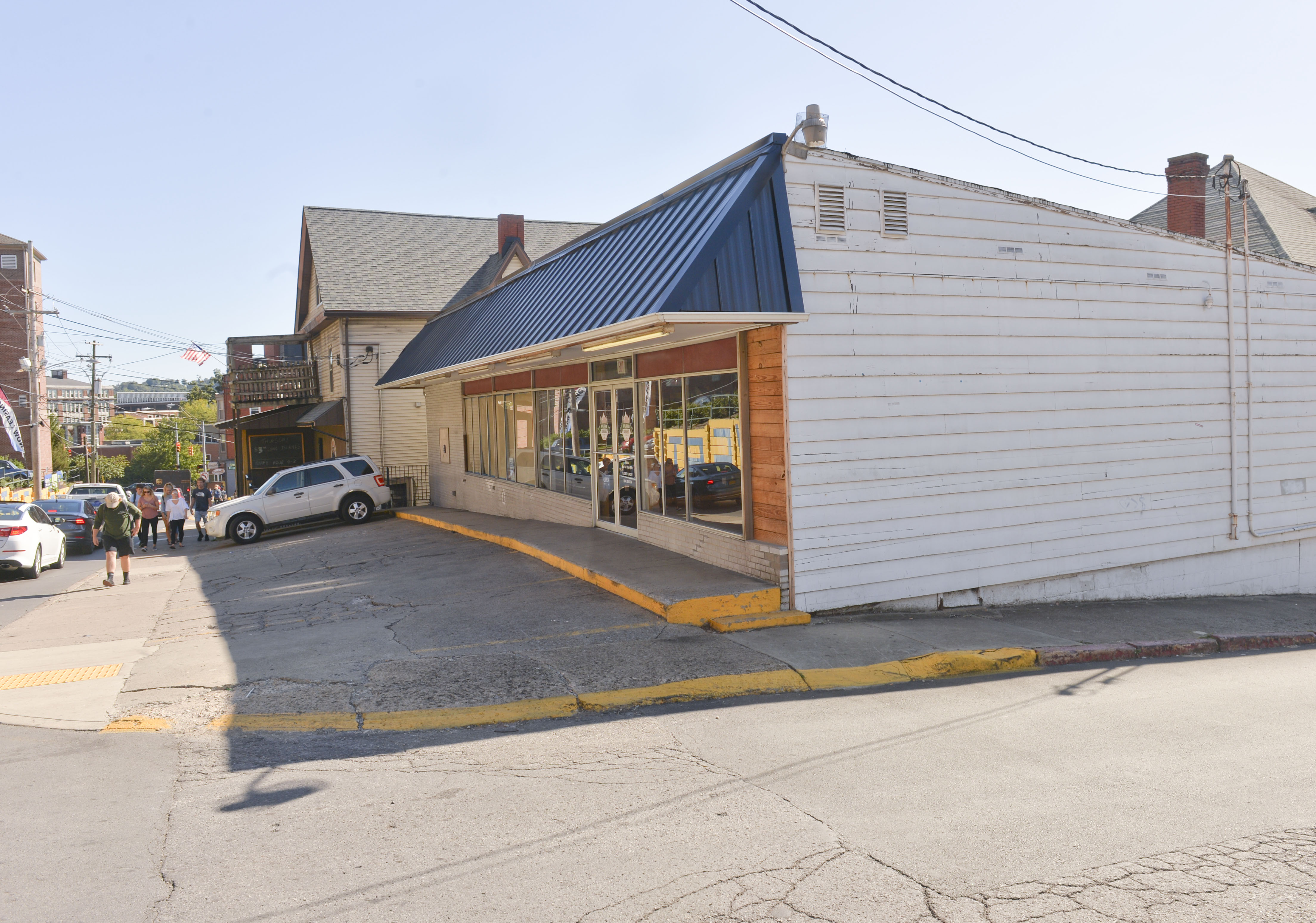MORGANTOWN — After nearly two years of back and forth with the city on a variety of issues, Chris Yeager said he lives with the nagging worry that he’s going to lose his business — Appalachian Cannabis Co., at 2045 University Ave.
He and his partner, Kristee Montgomery, recently told Morgantown City Council that will be the outcome if the city takes the business’ on-site parking in exchange for five or six public metered spaces along Second Street, which council recently voted to make a one-way street.
“Our main concern is that if that parking is taken from us, it will kill our business,” Yeager told council.
Appalachian Cannabis Co. opened in 2016 selling hemp-derived cannabidiol products, like CBD.
Shortly thereafter, the issues began, Yeager explained, noting the business has spent an estimated $50,000 trying to research right-of-way and site plan issues raised by the city pertaining to everything from windows to signage, and, most importantly, parking.
“This has been a year and a half and I’m in constant fear of what’s next,” Yeager said. “I just want to work with them on a resolution that won’t destroy our business. This has got to stop.”
The changing of Second Street to one-way from University Avenue to Grant Avenue has been consistently described by the city’s administration as coming in response to the business ultimately losing its on-site parking.
By making Second Street one way, it was explained, metered parking spaces could fit along the street near the store.
As City Manager Paul Brake explained prior to the Aug. 6 first reading, “This was a result of an extensive effort to identify alternative parking solutions to support the new business.”
The issue is one of land use. While the store-front parking spaces were permitted while the location housed the Sunnyside Superette — a neighborhood convenience store — they’re considered non-conforming for a retail business.
Vehicles parked in front of the store often hang out into the sidewalk. Backing out of the spaces entails backing across a busy pedestrian path and into a busy street.
Both Yeager and Montgomery said that had the city told them they would lose the parking, it’s likely they never would have invested in the location.
Additionally, Yeager said, shortly after purchasing the property they were notified that the old Sunnyside Superette sign, which they planned to repurpose with a new, lighted insert, was in the public right-of-way and had to come down.
“For 70 years it wasn’t an issue. It was only an issue after we took ownership of the building,” Yeager said, explaining that subsequent research refutes the city’s assertion. “It wasn’t [in the right-of-way] and we’ve since proved that point, but now the sign is gone, so it’s a moot point,” he said.
He said the decision was made to take the sign down before their research was complete out of fear of piling up daily fines.
“Now we feel they’re doing the same thing with our parking,” he said.
Montgomery became emotional when explaining the situation to council.
“I’m not sure where else we can go. We’ve reached out to the council members asking for assistance because we have done so much trying to get through all of this and maintain our business,” Montgomery said, later adding, “To say that it’s business friendly … there’s been nothing about this that has been business friendly.”
Council voted unanimously, 7-0, to restrict Second Street to one-way traffic on first reading. The vote was 5-2 on second reading, with councilors Zack Cruze and Ron Dulaney voting in the minority.
Cruze said he felt it was “incredibly unjust” of the city to force customers, many of whom are elderly or dealing with pain or mobility issues, to try to get one of a handful of metered spaces in a busy student neighborhood and walk uphill to the business.
Dulaney said he hoped the city would continue to work with the business owners on a solution. He noted that while council’s vote was specifically regarding the flow of traffic on Second Street, the other issues were linked and couldn’t be ignored.
“I had no problems making that street a one-way street,” Dulaney said, adding, “But to me, it just became too messy to look at it strictly as a one-way street issue.”
The Sunnyside Superette closed in 2015 after 70 years at the location following a months long closure of University Avenue and the construction of nearby University Place, which includes a Sheetz store.




